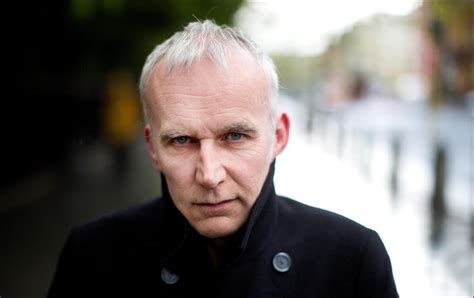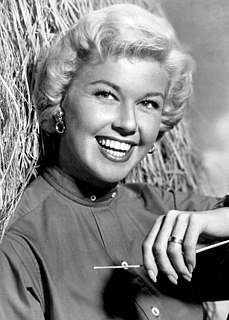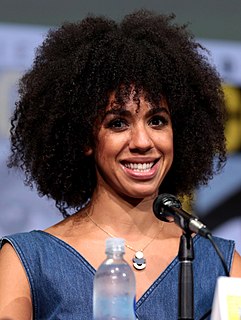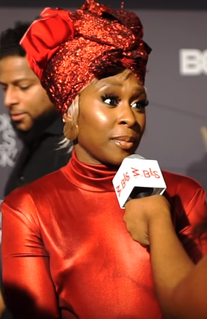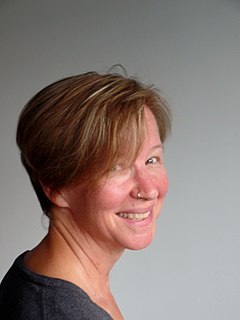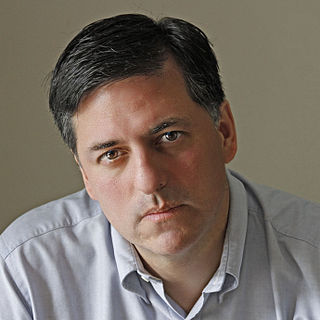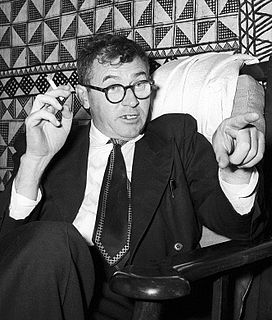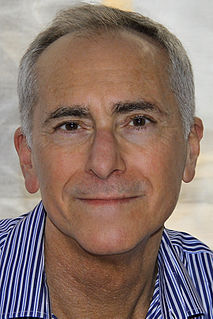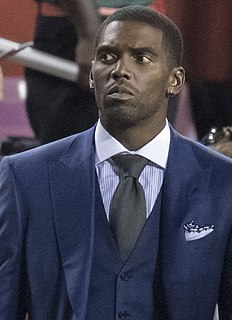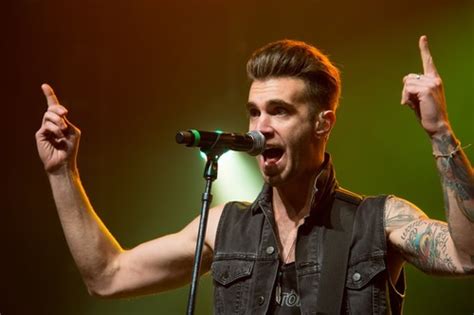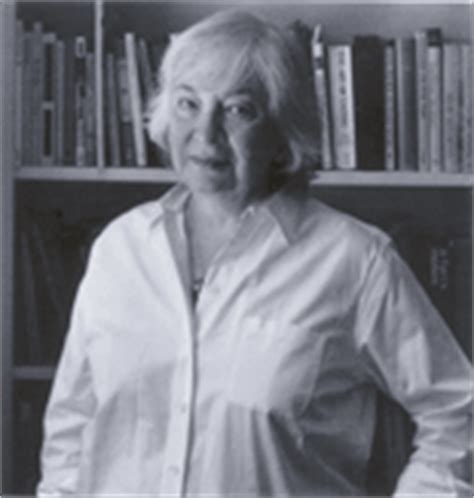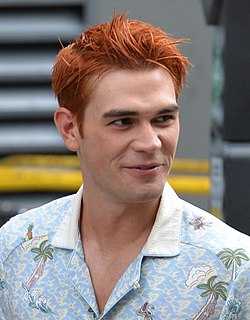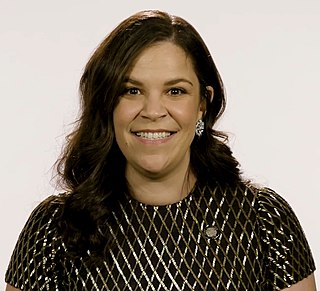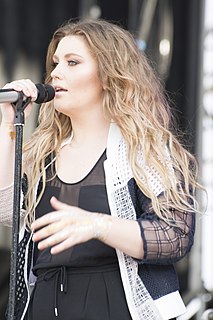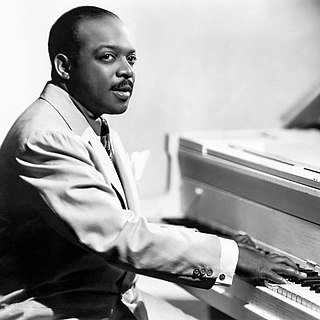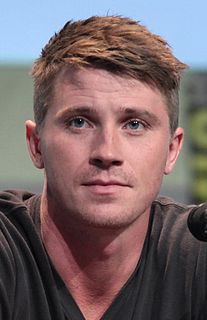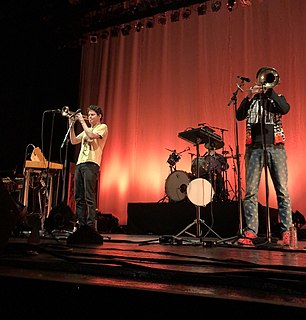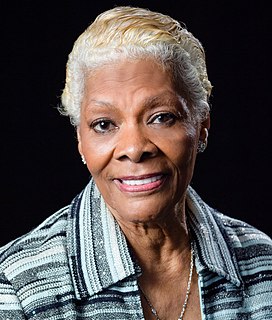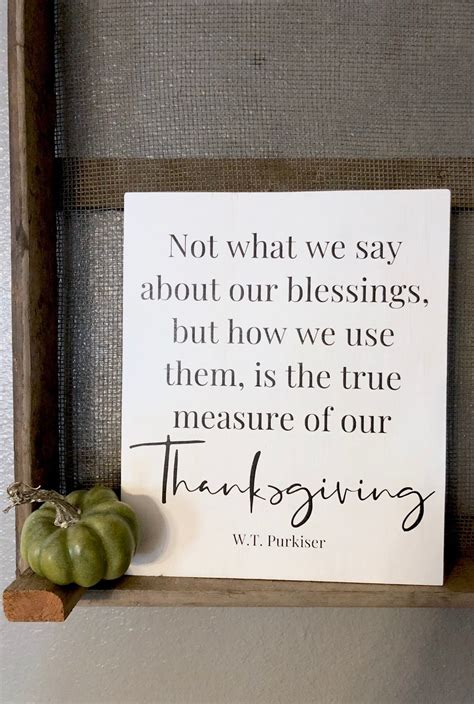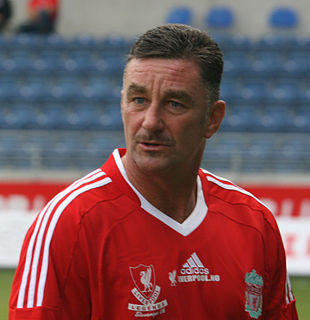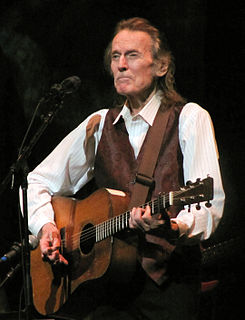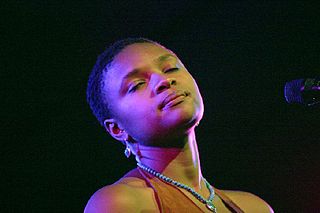Top 174 Fitzgerald Quotes & Sayings - Page 3
Explore popular Fitzgerald quotes.
Last updated on April 22, 2025.
When you saw the movie "The Curious Case of Benjamin Button," that was Michael [Jackson]'s story write large. Born as an elderly person, Benjamin Button was, in the F. Scott Fitzgerald novel and in the film starring Brad Pitt, he dies as a newborn child. Michael Jackson's childhood was one of enormous, prodigious production.He was a child prodigy, he was a wunderkind.
I am a rereader. Quality is variety if you wait long enough. Barthes, Baudelaire, Benjamin, Celine, Duras, Faulkner, Fitzgerald, Melville: There is so much to revisit. 'Ingrid Caven,' by Jean-Jacques Schuhl, is always in rotation. I used to read 'Morvern Callar,' by Alan Warner, every year - I adored that book.
The seriousness or otherwise of the subject matter is often irrelevent to the question of whether a book is any good. F Scott Fitzgerald wrote a great and beautiful novel which mainly involved shallow people going to parties in a rich guy's house. By contrast, all sorts of terrible books are published every month about men slaughtering people for no reason - a serious matter which, in itself, does not make the author worthy of serious consideration.
Even though Helen Vendler wasn't on the Harvard faculty when I came first in 1979, she was a guardian spirit; Robert Fitzgerald gave me the use of his study in Pusey Library. Monroe and Brenda Engel kept open house, Bob and Jana Kiely made me at home in Adams House. Then, too, in 1979, Frank Bidart, whom Id met in Dublin after the death of Robert Lowell he was over seeing Caroline Blackwood Frank brought me into his circle of friends, including Robert Pinsky and Alan Williamson.
The sad fact is that I love Dickens and Donne and Keats and Eliot and Forster and Conrad and Fitzgerald and Kafka and Wilde and Orwell and Waugh and Marvell and Greene and Sterne and Shakespeare and Webster and Swift and Yeats and Joyce and Hardy, really, really love them. It’s just that they don’t love me back.
All my big heroes are literary, writers. I'd love to meet Jimmy Hendrix or John Coltrane, but I'd much rather meet Thomas Wolfe, or F. Scott Fitzgerald. Words and books have always meant a lot to me. That someone can take words and string them together to where they will move me is just a hell of a thing. It's amazing to me; more amazing to me than music or painting. It's always been the written word or the spoken word, like a great lecture or a great lyric, or a great poem. To me it's just amazing. And I always aspire toward capturing that, or my version of it.
I like the hip writers: Fitzgerald, the guy who committed suicide, Hemingway, all those guys. Some of them were alcoholics and drug addicts but they had fun. They were real people. They formed the culture of American literature. Hemingway admired Tolstoy, Tolstoy admired Pushkin, and Mailer admired Hemingway. It all flows down. The greats are all connected. One day I'm gonna write a book myself. The first chapter will be about what a rough deal my momma got. She believed in you guys and your society.
I don't know how much more what I've done is any more important than what Ella Fitzgerald did. Ella crossed those lines, as did George Benson before me. There've been lots of people who brought a pop audience to jazz because they were able to link the two and give people easy access to the world of jazz.
There are days when I'm completely obsessed with Kate Bush, and there are days when I'm completely obsessed with the Eurythmics. Then it's Aretha Franklin, then it's Lena Horne, then it's Ella Fitzgerald, then it's John Legend, then it's Michael Jackson. Music, to me, is like food, so I feel like whatever I need that day, I can get from a song.
I went looking for some preliminary information, and very quickly was struck by the sort of way the surface-level knowledge about Zelda doesn't begin to describe the person that she really is. You know, I had come to the project with the idea that she was, you know, just F. Scott Fitzgerald's crazy, disruptive wife.
Rich people don't have to have a life-and-death relationship with the truth and its questions; they can ignore the truth and still thrive materially. I am not surprised many of them understand literature only as an ornament. Life is an ornament to them, relationships are ornaments, their “work” is but a flimsy, pretty ornament meant to momentarily thrill and capture attention. Why didn't I reread my F. Scott Fitzgerald sooner? I might have saved myself some time.
Fitzgerald describes the social disillusionments and ballroom romanticism of the young people of the upper classes and the loneliness of Gatsby, who gives large parties and has an extensive social life; yet he is lonely, and his guests scarcely know him.... Hemingway's characters live in a tourist world, and one of their major problems is that of consuming time itself. It is interesting to observe that his works are written from the stand point of the spectator. His characters are usually people who are looking--looking at bullfights, scenery, and at one another across cafe tables.
I developed a mania for Fitzgerald - by the time I'd graduated from high school I'd read everything he'd written. I started with 'The Great Gatsby' and moved on to 'Tender Is the Night,' which just swept me away. Then I read 'This Side of Paradise,' his novel about Princeton - I literally slept with that book under my pillow for two years.
I am more into the old school guy than I am with the new school guys. I came in young and I had to pay my dues to be considered a vet. To be able to play for over 10 years at wide receiver, that's why I like looking at the older guys like Larry Fitzgerald, Teddy Ginn Jr., Brian Hartline. That's what I'm about.
After my early days of being a passionate young Elvis fan, Chuck Berry, Little Richard, etc. I got interested in Ray Charles and Ella Fitzgerald. Then I got turned on to the blues. I realized how important it was to our music in England at the time. Everyone was into the blues. Then you start looking at the different kinds of blues, and you follow the journey backwards from Chicago to earlier times back down to the Delta to the Memphis Blues.
We were interviewing an author, and we started talking about how so many of them - Salinger, Shaw, Fitzgerald - were really an odd bunch. They put a barrier around themselves, and not many people got through it. This was the spark that I really latched onto - someone who could break through the barrier. Of course [FINDING FORRESTER] really began to take shape when I began to wonder, what if it was a young person?
Always tell us where we are. And don't just tell us where something is, make it pay off. Use description of landscape to help you establish the emotional tone of the scene. Keep notes of how other authors establish mood and foreshadow events by describing the world around the character. Look at the openings of Fitzgerald stories, and Graham Greene, they're great at this.
At any rate, that’s how I started running. Thirty three—that’s how old I was then. Still young enough, though no longer a young man. The age that Jesus Christ died. The age that Scott Fitzgerald started to go downhill. That age may be a kind of crossroads in life. That was the age when I began my life as a runner, and it was my belated, but real, starting point as a novelist.
Francis Scott Fitzgerald really read culture pretty damn clearly. It was he who understood that artistic achievement, really imaginative work, goes where the money is. Where people can afford to buy books and paintings. He linked money - not always in a positive way - to being able to encourage culture.
It seems to me that on one page I recognized a portion of an old diary of mine which mysteriously disappeared shortly after my marriage, and, also, scraps of letters which, though considerably edited, sound to me vaguely familiar. In fact, Mr. Fitzgerald (I believe that is how he spells his name) seems to believe that plagiarism begins at home.
I very comprehensively studied Irving Thalberg and his biographies. He's who [Scott] Fitzgerald roughly modeled the character after. He worked for him, as a writer, when he was at MGM. And, of course, I revisited the novel and the politics of MGM and the studio system at the time and familiarized myself with the world. There was a great deal of physical and literary work that went into it.
Poetry died as a commercial form and then it died as a serious art form. No one serious touches it. It used to be that somebody like F. Scott Fitzgerald could make a high middle-class income from working as a short story writer for the Saturday Evening Post and other outlets. That doesn't happen anymore. It used to be that a legitimate playwright could make a living on Broadway from writing decent plays.
Do you think that Hemingway knew he was a writer at twenty years old? No, he did not. Or Fitzgerald, or Wolfe. This is a difficult concept to grasp. Hemingway didn't know he was Ernest Hemingway when he was a young man. Faulkner didn't know he was William Faulkner. But they had to take the first step. They had to call themselves writers. That is the first revolutionary act a writer has to make. It takes courage. But it's necessary
When I was young, I never bought records because my brother Joseph played saxophone and had a record player. I loved listening to his records: The Dorsey Brothers, Duke Ellington, all the big American jazz bands, and vocalists like Ella Fitzgerald, Ernestine Anderson, and Kitty White, a singer from the US who was a friend of Nina Simone. Nobody in America seems to know about her, but she was quite popular in South Africa.
I got everything I wanted. When I was young in Kansas City, I knew nothing about Frank Sinatra, Billy Eckstine, Ella Fitzgerald, of all those concert halls, of all those countries. I did not know what it was like to direct a band... All I wanted was to be big, to be in show-business, and to travel...and that's what I've been doing all my life.
When John Kennedy attempted to take the government back from the back from the robber barons, he was brutally murdered. The message to future US president and leaders across the world was clear: do as you're told, or die. John Fitzgerald Kennedy was the last true president of the United States. And until the globalists are removed from power, we will never have another real one.
Like Hemingway and Faulkner, but in an entirely different mode, Fitzgerald had that singular quality without which a writer is not really a writer at all, and that is a voice, a distinct and identifiable voice. This is really not the same thing as a style; a style can be emulated, a voice cannot, and the witty, rueful, elegaic voice gives his work its bright authenticity.
I think it's dangerous to think you know what you're writing. I usually don't know, and usually I just discover it in the course of writing. I envy those writers who can outline a beginning, a middle, and end. Fitzgerald supposedly did it. John Irving does. Bret Easton Ellis does. But for me, the writing itself is the process of discovery. I can't see all that far ahead.
I fantasised about F. Scott Fitzgerald's 'The Great Gatsby' - I loved it, and then I read everything J. D. Salinger had to offer. Then I was turned on to Kerouac, and his spontaneous prose, his stream of consciousness way of writing. I admired him so much, and I romanticised so much about the '40s and '50s.
...Baltimore. It's imperfect. Boy, is it imperfect. And there are parts of its past that make you wince. It's not all marble steps and waitresses calling you 'hon,' you know. Racial strife in the sixties, the riots during the Civil War. F. Scott Fitzgerald said it was civilized and gay, rotted and polite. The terms are slightly anachronistic now, but I think he was essentially right.
Fitzgerald never got rid of anything; the ghosts of his adolescence, the failures of his youth, the doubts of his maturity plagued him to the end. He was supremely a part of the world he described, so much a part that he made himself its king and then, when he saw it begin to crumble, he crumbled with it and led it to death.
I'm in love with the way that Ella Fitzgerald delivered a lyric. She would deliver a lyric with the kind of clarity that would make you wonder why it was written, and make you think about the writer. I think every writer hopes an Ella of any genre or anytime gets a hold of their work and works the song like that.



